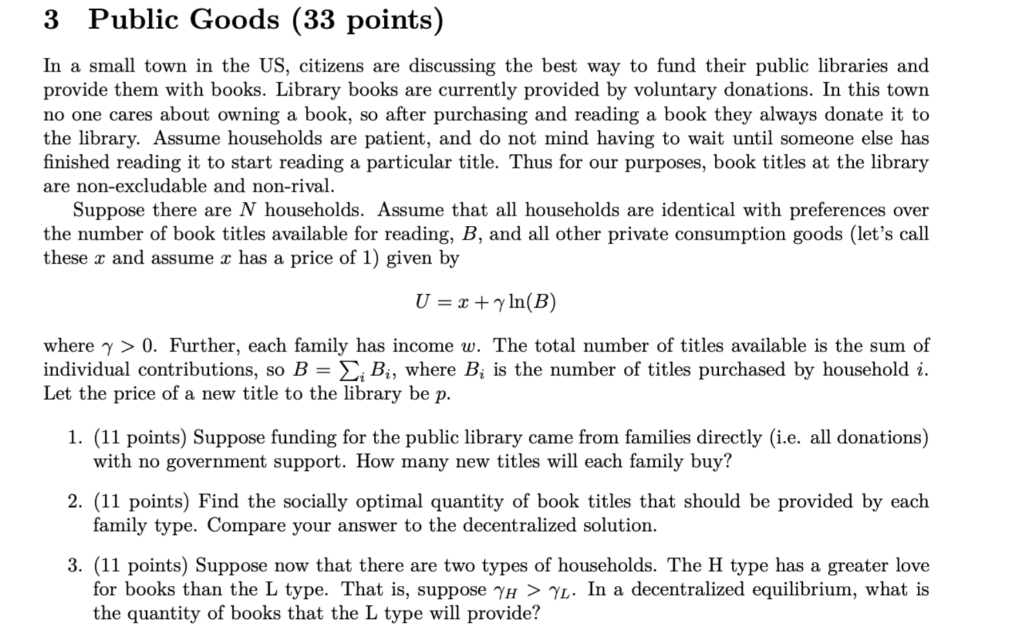
3 Public Goods (33 points) In a small town in the US, citizens are discussing the best way to fund their public libraries and provide them with books. Library books are currently provided by voluntary donations. In this town no one cares about owning a book, so after purchasing and reading a book they always donate it to the library. Assume households are patient, and do not mind having to wait until someone else has finished reading it to start reading a particular title. Thus for our purposes, book titles at the library are non-excludable and non-rival. Suppose there are N households. Assume that all households are identical with preferences over the number of book titles available for reading, B, and all other private consumption goods (let's call these x and assume x has a price of 1) given by U = x + y ln(B) where > 0. Further, each family has income w. The total number of titles available is the sum of individual contributions, so B = {i Bi, where B; is the number of titles purchased by household i. Let the price of a new title to the library be p. 1. (11 points) Suppose funding for the public library came from families directly (i.e. all donations) with no government support. How many new titles will each family buy? 2. (11 points) Find the socially optimal quantity of book titles that should be provided by each family type. Compare your answer to the decentralized solution. 3. (11 points) Suppose now that there are two types of households. The H type has a greater love for books than the L type. That is, suppose yh > 11. In a decentralized equilibrium, what is the quantity of books that the L type will provide? 3 Public Goods (33 points) In a small town in the US, citizens are discussing the best way to fund their public libraries and provide them with books. Library books are currently provided by voluntary donations. In this town no one cares about owning a book, so after purchasing and reading a book they always donate it to the library. Assume households are patient, and do not mind having to wait until someone else has finished reading it to start reading a particular title. Thus for our purposes, book titles at the library are non-excludable and non-rival. Suppose there are N households. Assume that all households are identical with preferences over the number of book titles available for reading, B, and all other private consumption goods (let's call these x and assume x has a price of 1) given by U = x + y ln(B) where > 0. Further, each family has income w. The total number of titles available is the sum of individual contributions, so B = {i Bi, where B; is the number of titles purchased by household i. Let the price of a new title to the library be p. 1. (11 points) Suppose funding for the public library came from families directly (i.e. all donations) with no government support. How many new titles will each family buy? 2. (11 points) Find the socially optimal quantity of book titles that should be provided by each family type. Compare your answer to the decentralized solution. 3. (11 points) Suppose now that there are two types of households. The H type has a greater love for books than the L type. That is, suppose yh > 11. In a decentralized equilibrium, what is the quantity of books that the L type will provide







